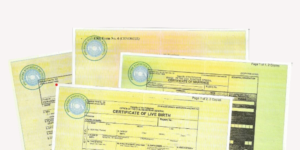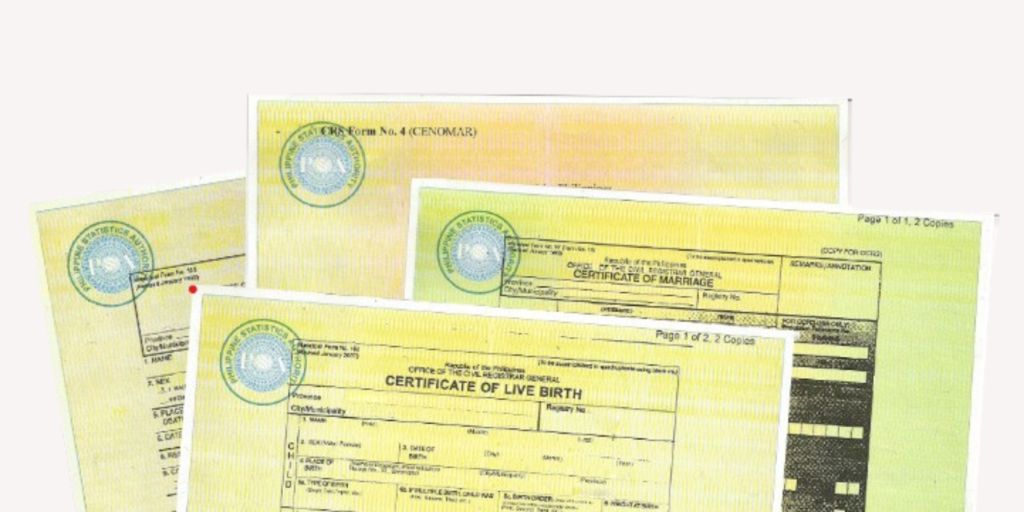Generally, when a decedent dies, he/she leaves properties behind the heirs to inherit. However, before full ownership or possession can be divided among heirs, the estate must first be settled. This is usually done through a judicial proceeding, however, Rule 74, Section 1 of the Revised Rules of the Court of the Philippines, provides that the settlement of a decedent estate need not undergo judicial proceedings at all times, it may be settled under an extrajudicial settlement among the heirs provided that:
- The decedent left no will and testament;
- The decedent has no outstanding debts at the time of the extrajudicial settlement;
- All are of legal age or the minors are duly represented by judicial or legal representatives;
- A public instrument is executed by the heirs and filed with the register of deeds i.e. the Deed of Extrajudicial Settlement;
- The extrajudicial settlement was published in a newspaper of general circulation in the province once a week for three (3) consecutive weeks; and
- A bond is posted with the register of deeds if the estate includes personal properties.
Extrajudicial Settlement of Estate is usually to expedite the transfer of properties of the deceased person to his heirs without having to go to court.
What is an Extrajudicial Settlement of Estate with Sale?
It is the combination of an extrajudicial settlement of estate with deed of absolute sale for the heirs who desires to transfer real property the decedent which in turn would be sold to another person. This legal document is used to settle the estate and/or sell the inherited property. Additionally, it gives the buyer protection because he can see that the estate partition is truly proceeding, enabling the property to be transferred into his name.
What should be stated in the Extrajudicial Settlement of Estate with Sale?
-
-
- Names of the heirs
- The relationship of the heirs with the decedent;
- That they are the decedent’s only surviving heirs;
- That the decedent left no will and no outstanding debts;
- The description of the Decedent‘s property being sold;
- That said Deed shall be published in a newspaper of general circulation once a week for three (3) consecutive weeks;
- That the subject property is not tenanted or is cultivated and is free from encumbrances; and
- The sale price of the property with the name of the buyer.
-
After the publication for three (3) consecutive weeks, the estate tax of the decedent must first be settled. Otherwise the Register of Deeds will be precluded from transferring the property to heirs. After payment of the estate tax, the Bureau of Internal Revenue (BIR) will issue a Certificate Authorizing Registration (CAR).
Upon issuance of the CAR, the heirs may now proceed to the Register of Deeds and request for the transfer of the property’s certificate of title in the name of the heirs. Generally these are the documents that are required to process the transfer of title:
-
-
- Deed of extrajudicial settlement;
- Original owner’s duplicate copy of the title;
- Certified True Copy of the CAR;
- Transfer tax receipt from the treasurer’s office with security seal and certification;
- Real Property Tax Clearance from the treasurer’s office;
- Certified True Copy of the Tax Declaration;
- Affidavit of publication with newspaper clippings; and
- Proof of payment of transfer tax (i.e., official receipt).
-
Once the Transfer Certificate Title (TCT) has already been issued to the heirs, the Deed of Absolute Sale can now be effected.
Generally, the steps in processing the Deed of Absolute Sale are as follows:
-
-
- Submit to the BIR the Deed of Absolute Sale and other related documents;
- The BIR will compute the Capital Gains Tax (CGT) and will require the fill up of BIR Form 1706 and BIR 2000-OT.
- Note: The CGT must be paid within 30 days after the notarization of the Deed of Sale or the release of the initial payment to the property.
- Payment of the Documentary Stamp Tax is simultaneously done with the payment of the CGT.
- Note: Within 5 days upon notarization of the Deed of Absolute Sale.
- BIR will then issue a CAR;
- After the issuance of the CAR, the parties may now proceed to the RD for the issuance of the TCT.
- Lastly, payment of transfer tax for the real property to the local assessor.
-
Need further information and assistance in processing Extrajudicial Settlement? Talk to our team at FILEDOCSPHIL to know more about the requirements and process. Call us today at (+63) 917 149 2337 or send an email to info@filedocsphil.com for more information.







